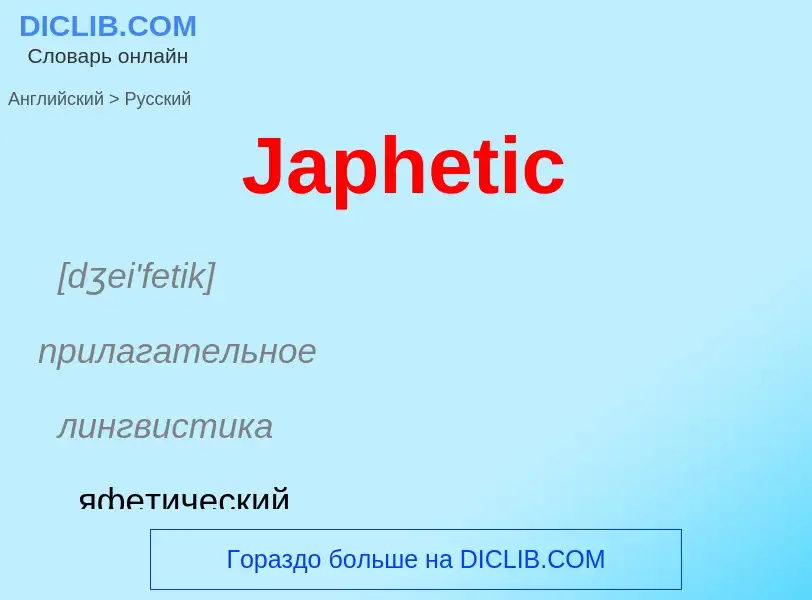ترجمة وتحليل الكلمات عن طريق الذكاء الاصطناعي ChatGPT
في هذه الصفحة يمكنك الحصول على تحليل مفصل لكلمة أو عبارة باستخدام أفضل تقنيات الذكاء الاصطناعي المتوفرة اليوم:
- كيف يتم استخدام الكلمة في اللغة
- تردد الكلمة
- ما إذا كانت الكلمة تستخدم في كثير من الأحيان في اللغة المنطوقة أو المكتوبة
- خيارات الترجمة إلى الروسية أو الإسبانية، على التوالي
- أمثلة على استخدام الكلمة (عدة عبارات مع الترجمة)
- أصل الكلمة
Japhetic - ترجمة إلى الروسية
[dʒei'fetik]
прилагательное
лингвистика
яфетический
существительное
[dʒei'fetik]
общая лексика
яфетические языки
[indəuju(ə)rə'piənist]
существительное
общая лексика
(лингвист-)индоевропеист
تعريف
ويكيبيديا

The term Japhetites (in adjective form Japhethitic or Japhetic) refers to the descendants of Japheth, one of the three sons of Noah in the Bible. The term has been adopted in ethnological and linguistic writing from the 18th to the 20th century but has now become obsolete.
In medieval ethnography, the world was believed to have been divided into three large-scale groupings, corresponding to the three classical continents: the Semitic peoples of Asia, the Hamitic peoples of Africa and the Japhetic peoples of Europe.
The term has been used in modern times as a designation in physical anthropology, ethnography and comparative linguistics. In anthropology, it was used in a racial sense for white people (the Caucasian race). In linguistics, it was used as a term for the Indo-European languages. These uses are now mostly obsolete. In a linguistic sense, only the Semitic peoples form a well-defined family. The Indo-European group is no longer known as "Japhetite", and the Hamitic group is now recognized as paraphyletic within the Afro-Asiatic family.
Among Muslim historians, Japheth is usually regarded as the ancestor of the Gog and Magog tribes, and, at times, of the Turks, Khazars, and Slavs.



